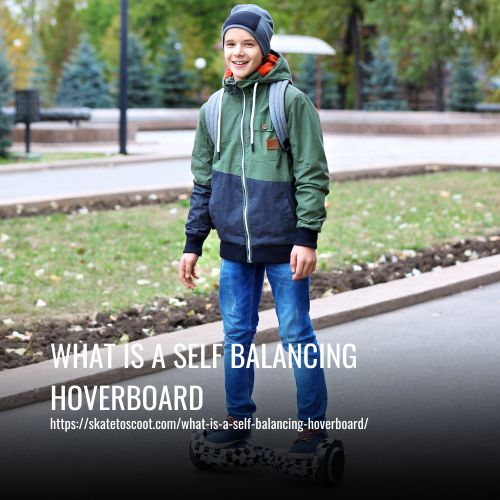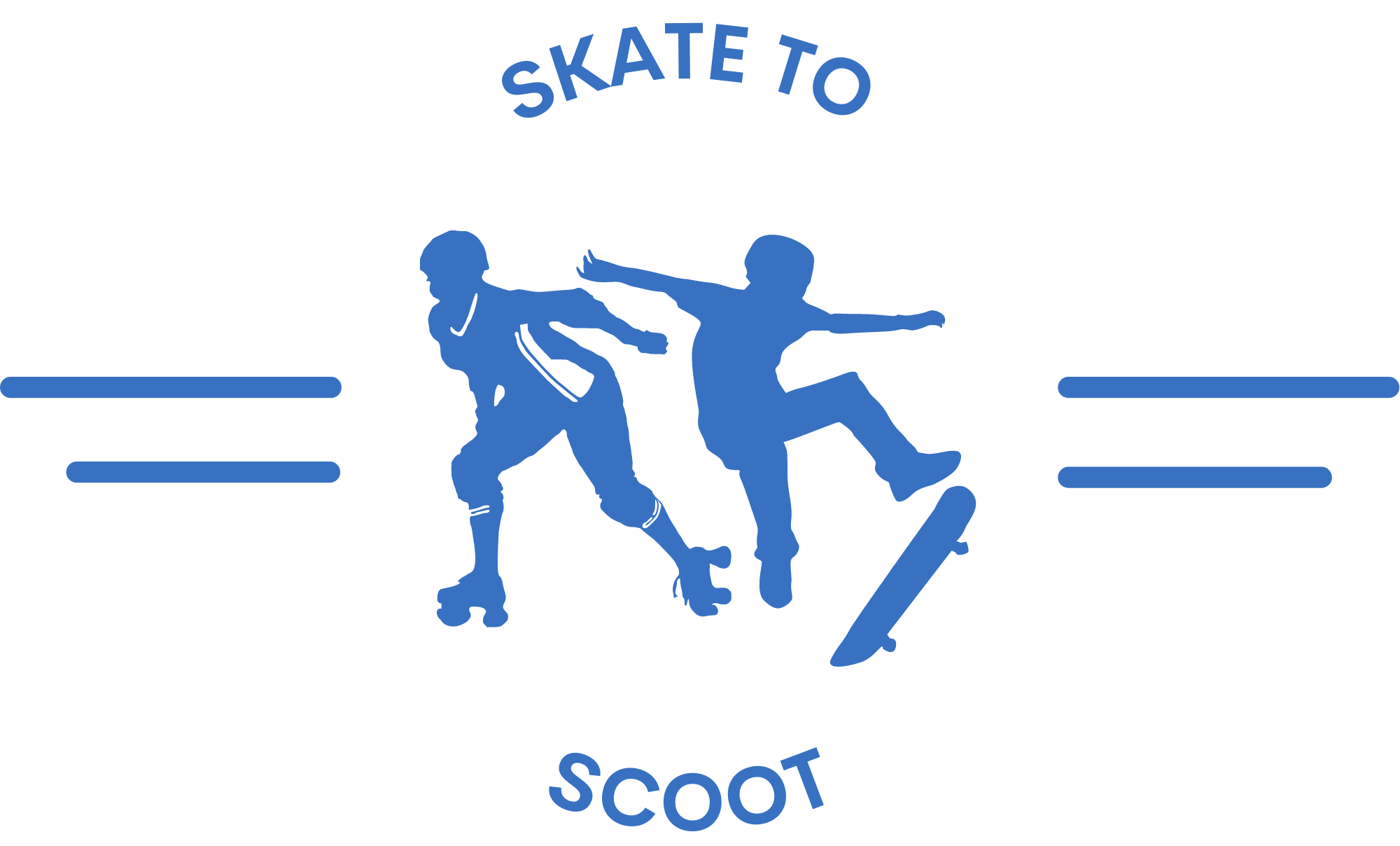What Is A Self Balancing Hoverboard
This post contains affiliate links. As an Amazon Associate, we earn from qualifying purchases.
A self-balancing hoverboard is an electric scooter equipped with advanced technology that allows riders to maintain balance and stability while riding on two wheels. It is powered by a rechargeable lithium-ion battery pack and equipped with a powerful motor that enables smooth and effortless rides.
With safety certifications and adherence to safety standards, self-balancing hoverboards offer a safe and enjoyable experience. They come with features like self-balancing mode and training mode to cater to riders of different skill levels. Some models also feature built-in Bluetooth speakers and flashy LED lights for added entertainment.

How Does A Self-balancing Hoverboard Work?
Self-balancing hoverboards, despite their name, do not actually hover. Instead, they utilize a clever combination of electric motors, sensors, and gyroscopes to ensure stability and balance. These innovative devices consist of two small wheels and employ advanced technology to provide a smooth and safe riding experience.
The self-balancing mechanism relies on a built-in gyroscope that constantly monitors and maintains the board’s orientation. Additionally, sensors in the footpads allow the rider to control the hoverboard’s movement by shifting their weight. When the rider leans forward, the hoverboard detects this change in the center of gravity and accelerates in response.
Conversely, returning to a centered position gradually reduces the power output until the hoverboard comes to a stop. This intricate system of sensors, motors, and gyroscopes ensures a smooth ride and allows riders to effortlessly control their hoverboards. Despite their lack of actual hovering, self-balancing hoverboards remain a popular and exciting mode of transportation for people of all ages.
What Are The Different Balancing Parts That Make A Hoverboard?
A hoverboard is made up of several key components that work together to create a smooth and balanced riding experience. The most important parts include the two wheels, typically around 8.5 inches in diameter, that provide stability and maneuverability. These wheels are connected to a central pivot, which allows the hoverboard to turn and pivot smoothly.
The hoverboard is powered by a rechargeable lithium-ion battery pack, which supplies energy to the small electric motors that drive the wheels. To ensure safety and stability, hoverboards are equipped with an array of sensors, including tilt sensors and gyroscopes, which constantly monitor the rider’s balance and make adjustments to keep them upright.
Some hoverboards also feature additional components such as built-in Bluetooth speakers and flashy LED lights to enhance the riding experience. Overall, these different parts work in harmony to create a self-balancing hoverboard that offers a fun and efficient mode of transportation.
All hoverboards are made up of the following:
All hoverboards are made up of several key components. This includes two wheels, typically made from a hard polyurethane plastic or rubber, and two motors that control each wheel. The hoverboard also consists of foot paddles and a frame for the rider to stand on, along with a rechargeable battery to power the device.
The hoverboard’s functionality relies on a gyroscope and electric sensors, which work together to maintain balance and control. Electrical wiring connects the various components, allowing for seamless operation. The motor’s power output varies depending on the wheel size, with larger wheels providing more power.
Modern hoverboards often use rechargeable lithium-ion batteries, providing a sufficient amount of power for around 45 minutes to an hour of use, with a recharge time of 6-8 hours. Overall, these components work harmoniously to create a smooth and self-balancing ride for the user.
What’s The Point Of These Things?
Hoverboards, despite some controversy, have become a popular mode of transportation for many people. These electric scooters are equipped with powerful motors and lithium-ion battery packs, allowing for a smooth and efficient ride.
One of the key features of a hoverboard is its self-balancing capability, achieved through tilt sensors and gyroscopes that automatically adjust the balance of the device. This means that riders do not have to rely solely on their own balance and can enjoy a stable and controlled ride.
Safety is also a crucial aspect, with many hoverboards being certified to meet safety standards and equipped with features such as LED lights for visibility. Overall, hoverboards offer a convenient and enjoyable way to travel, providing an alternative to traditional transportation methods.
Are All Hoverboards Self-balancing?
Are all hoverboards self-balancing? Yes, all hoverboards are self-balancing. The self-balancing feature is an essential component that allows the hoverboard to maintain stability and prevent riders from losing their balance and falling off. Without this feature, hoverboards would not be able to function properly and would not be safe to ride.
The self-balancing mechanism relies on tilt sensors and a pair of gyroscopes to detect the rider’s movements and adjust the speed and direction of the wheels accordingly. This ensures a smooth and stable ride, even on uneven surfaces.
Whether it’s an electric hoverboard, a self-balancing scooter, or a standard hoverboard, all models are equipped with this self-balancing feature to provide a safe and enjoyable riding experience for users of all ages.
Is It Legal to Use a Hoverboard?
The use of Hoverboards on public pavement and other non-road surfaces has proven controversial, with several governments banning their use. Hoverboards cannot be classified as unlawful in any way. Nevertheless, there are specific regulations that must be observed in various areas of the globe.
So, yes and no! People may ride these boards on sidewalks and in most public areas, but you cannot drive them. Several businesses are still developing this highly touted product, but you should only purchase one designed for walking and not driving.
As of now, the only way to operate a hoverboard legally is to receive a ticket from a cop. Numerous police officers consider them dangerous since they are often designed to appear like scooters rather than skateboards.
Other Safety Concerns for Hoverboard
Hoverboards, also known as self-balancing scooters or self-balancing hoverboards, have faced numerous safety concerns since their introduction. One of the most significant issues is the overheating of lithium-ion battery packs, which can lead to explosions and fire hazards.
It is crucial to avoid leaving hoverboards charging overnight and to keep them away from anything that may easily catch fire. While hoverboards need to satisfy safety standards such as the UL 2272 certification, this doesn’t guarantee protection against overheating or burning incidents. The Consumer Product Safety Commission (CPSC) has received multiple reports of hoverboard battery packs exploding or catching fire.
As a result, many airlines, railroads, and colleges have banned hoverboards due to safety concerns. Ensuring the safety of hoverboards is crucial, and users should take necessary precautions and follow safety regulations to prevent accidents and ensure a secure riding experience.
FAQs
Hoverboards have gone from being trendy gadgets to versatile transportation. They were used for collecting newspapers or leisurely rides, but now they serve various recreational and commercial purposes. Kids love them, and adults do too. There are different models for adults and kids, with smaller wheels being less powerful. So, if you’re an adult, make sure to choose a hoverboard made for you.
The self-balancing component is crucial for the proper functioning of a hoverboard. It allows the rider to maintain balance and stability while riding. Without this feature, the hoverboard would not be able to operate effectively and would not provide a smooth and safe riding experience. Therefore, the self-balancing component is an essential part of any hoverboard.
The most common issues with hoverboards occur during the process of mounting and dismounting, often resulting in individuals falling off the hoverboard multiple times while learning.
Hoverboards are a convenient mode of transportation, but they can be challenging to operate at first. Similar to riding a bike, they require practice and balance to become comfortable. It may take some time for riders to adjust and get used to maneuvering the hoverboard.
Yes, hoverboards do catch fire! Overheating of lithium-ion battery packs may cause these self-balancing scooters to explode. It is best not to leave the hoverboard on charge throughout the night. Always keep your hoverboard away from anything that may easily catch fire. All hoverboards need to satisfy the UL 2272 safety standard. This certification does not guarantee the safety of the hoverboard against overheating or burning. The Consumer Product Safety Commission (CPSC) has received several reports of hoverboard battery packs exploding or catching fire. Hoverboards have already been banned by airlines, railroads, and colleges due to safety concerns.
Conclusion:
A self-balancing hoverboard is not just a trendy toy, but a revolutionary mode of transportation. With its sleek design, ease of use, and eco-friendly nature, it’s no wonder why these futuristic gadgets have taken the world by storm.
So, why settle for walking or driving when you can effortlessly glide through life on a self-balancing hoverboard? Embrace the future and let the hoverboard revolution begin!
